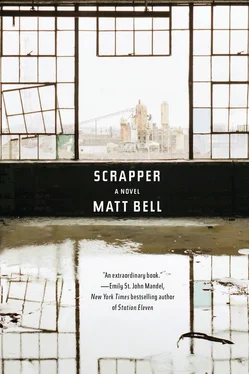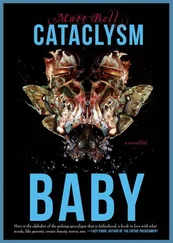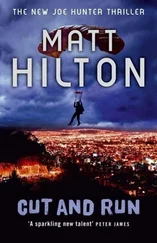There was a man who cried at the end of every story and there was a man who never cried and Kelly thought he knew where his own sympathies lay. Outside in the dark the three men smoked and the man who never cried said the suffering of the individual had been eclipsed by the suffering of the masses. Earthquakes in Haiti, tsunamis and nuclear devastation in Japan. Genocides in Africa, riots in the streets in London, Athens, Los Angeles. It had happened here in the city, the city burning three times. There was what we had made with our wars in Afghanistan and Iraq, in places we probably didn’t know our country’s forces were fighting, and What is Syria was at least as good a question as Where . The longer the man spoke the more the qualities of pronouns got nebulous. Who was we and who was they . He said there were diseases in Asia making our vaccines look like the toys of children, unlucky Americans returning from foreign vacations with their flesh falling off their faces, crying out their disbelief for the nightly news.
The man who never cried said, It could be any one of us before the cameras, insane with the odds. While in vacationland there’s a thousand natives sick, unrecorded, unbroadcast.
Here we are, the man said. And am I the same as my complaint or am I worse for knowing better.
The other man was at it again. Still crying he tried to comfort the man who never cried but the second man nearly shoved him from the church steps.
All I’m saying, the man who never cried said, is there are whole cities falling into the ocean, whole species going extinct beneath the hottest sun in ten thousand years. We’re here wailing about a single human life.
He said, I loved my wife but she’s gone.
He said, I loved my wife but is she the equivalent of a thousand starving children I can’t see well enough to mourn.
My wife, he said, is statistically insignificant no matter how you’re counting.
The girl with the limp had a bad day and the cane came out from the side of the bed, its handle curled beneath her clenched hand. The muscles in her bad leg knotted and Kelly rubbed their tight cords, made amateur improvements. This was a different way of touching her body, her sickness more private than their sex. She had a bottle of muscle relaxers, a physical therapist she could call. He cooked the food she needed to take the pills, refused her the drink she requested next, poured them both water instead. And when was the last time they drank water.
How bad is it, he asked, and she lied to him: I’m fine, she said, I told you I’m fine. She could barely talk through the pain and as the pills took effect her voice thickened. She gestured aimlessly with the remote, hit its buttons with a senseless violence, found her hockey game and settled onto the couch. She knew the names of all the players, complained when Kelly forgot what she’d taught him. He wasn’t good with names, he said, and she laughed because she knew, because it was one of the first things she knew about him.
When he lost track of the game he watched her watching instead. There was something local to know about octopus, a play-off legend she couldn’t explain. Tradition, she said. Its origins were in the past and she didn’t care about history, only victory. She couldn’t be an athlete anymore but she cheered anyone who was. He had been one himself but he didn’t tell her the details. Boxing, he said. Wrestling, he said. More history. After the game ended they watched the news and at the bottom of the screen the scrolling ticker announced again the results of a televised singing competition, the flavor of a new color of soda, the failure of a bill promoting equal pay for equal work. The long emergency was visible anywhere the ticker ran. The ticker had come to life on the country’s worst day and it had never gone away: How you couldn’t always guard against what scared you most. How the urgency of your watchfulness dulled with time. How knowing this only made the remaining fear worse.
She pressed her body against Kelly’s, slurred through the pills until she slept with her feet in his lap, her bad leg twitching against the couch, scraping sweatpants over rough fabric. A series of the smallest gestures followed: one man, one woman, sleeping together on a couch in a rented apartment. When Kelly awoke the nightly news was flooding the screen with the day’s events, the political pronouncements and product releases. The president appeared again in his favorite hallway, a West Wing locale saved for announcing the deaths of enemies of the state, the upheld constitutionality of his laws. He claimed to have ended wars from this arrangement of white columns and gold light and red carpet, spoke his prepared speeches with his preacher’s cadence, allowed his hands the few acceptable motions of the American president: the fist-with-pointing-thumb, the chopping hand, the open clutch. Kelly thought the president was speaking directly to him, another of the president’s gifts. His undeniable charisma. Always his own people were beyond reproach, always the president had to believe in our exceptionalism.
In another story an iceberg sloughed off an ice shelf and fell into the sea. Competing viewpoints were offered but all Kelly believed in was human agency. As a child he had tried to imagine the state as it might have been before it was settled, still forested everywhere, the old growth dense and dark and endless with mystery and megafauna and tribal law. Later he’d watched a documentary that claimed the indigenous peoples decimated the trees so thoroughly they removed enough carbon dioxide from the atmosphere to cause an ice age. There was no end to the great harm men could do to the world, the unwitting cost of dominion. So far, every time the doomsday clock went off it got reset, but who knew how long such luck would hold. Sometimes when Kelly watched the president speak he thought the man could hear the dread clock ticking.
ON SATURDAY AFTERNOON THE CRUISERS parked their cars in rows, idled engines in a show of chrome, combustion, exhaust. The girl with the limp knew the makes and models and approximate years, had the arcana of automobiles down. There was talk of other men but she said her interests were hers, didn’t rely on outside influences. Kelly poked his head under raised hoods, searched out the parts he could name. He had never changed his own oil, didn’t necessarily know what the bottom of his truck looked like. He knew the word carburetor but that was another knowledge passing from the earth. There were questions he might have asked if he didn’t hate to open up his ignorance to others.
Everything mechanical sounded better in her voice. The way she said 1955 Chevy, 1964 Dodge . A throaty appreciation, an audible desire.
They surveyed the majesty of hood ornaments, the leaping jaguar, the Pentastar, the impala, the three-pointed star, the Spirit of Ecstasy, the cormorant. A Greek goddess, the archer, the Plymouth ship, the greyhound. An array of rockets evoking a future destined never to come, the face of a chief forced to roam taken lands at new speeds, a golden-winged Cadillac beauty the reminder of a past no one believed. In others cars they saw well-maintained seats, leather made of real animals, preserved to perfection fifty years after the skinned beasts were dust. They peered through windows, examined dashes crowded with dials and meters, buttons and knobs, analog extravagance. They saw a record player in a Dodge Polara and he asked when the car had been built. She didn’t know but she touched his arm, the gesture better than any answer. Before 1930 there were no radios in automobiles, she said, and so what did people listen to when they drove? The sounds of the road, the engine, each other.
She pointed and said, A 1947 Packard Clipper, a car red like all these cars were red. He walked around the vehicle, kneeled before its skinny grille, considered its endangered curves. He no longer thought about the fire at the plant every day. You couldn’t escape the past but he hoped you could choose what to restore, what to keep gleaming. This was the progress Kelly had seen, not the replacing of the old city with the new but the building of smarter exits and bypasses.
Читать дальше












